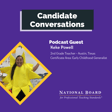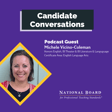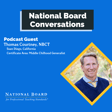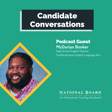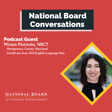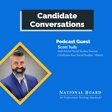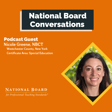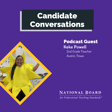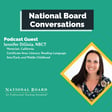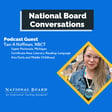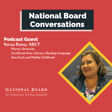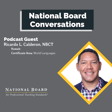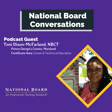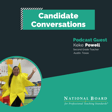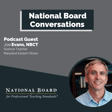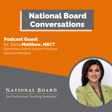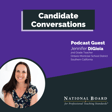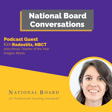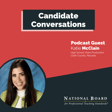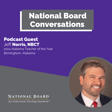
Candidate Conversations - D'Ion Copeland - 8th Grade History Teacher - Lexington, Kentucky
Dion Copeland is a transformative educator and manager committed to high-quality instruction, training, and development. He is a graduate of the University of Louisville with a B.S. in Middle Secondary Education concentrating in Social Studies. Mr. Copeland is active in his school and professional organizations as an SBDM council member, Diversity Lead and Committee Chair, Social Studies Department Chair, and a member of the National Education Association's Cohort of Leaders for Just Schools. Mr. Copeland is a recipient of the Fayette County Educators Association Teaching Excellence Award (2023), the Kentucky Education Association Diversity Lesson Plan Award (2023), and the Earl C Clements Innovation in Education Award (2023).
Don't miss out on all National Board related updates; follow us on social media to keep up!
Twitter: @NBPTS
Instagram: @NBPTS
Facebook: The National Board for Professional Teaching Standards
